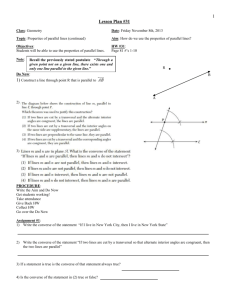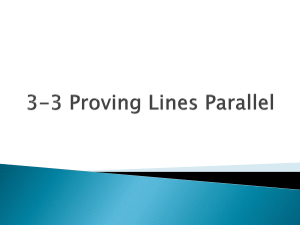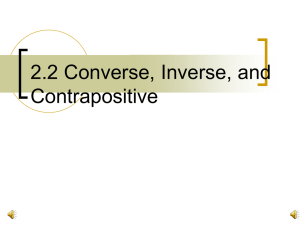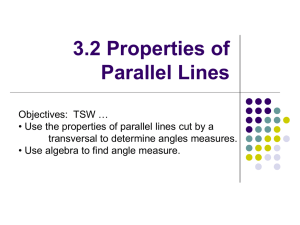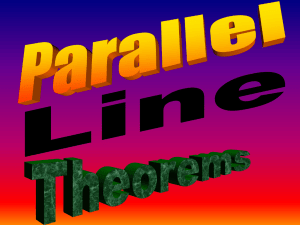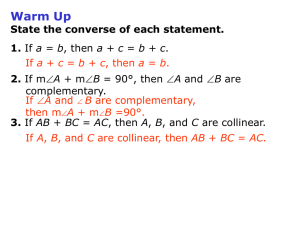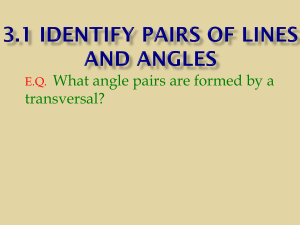3.3 – Proves Lines are Parallel
advertisement
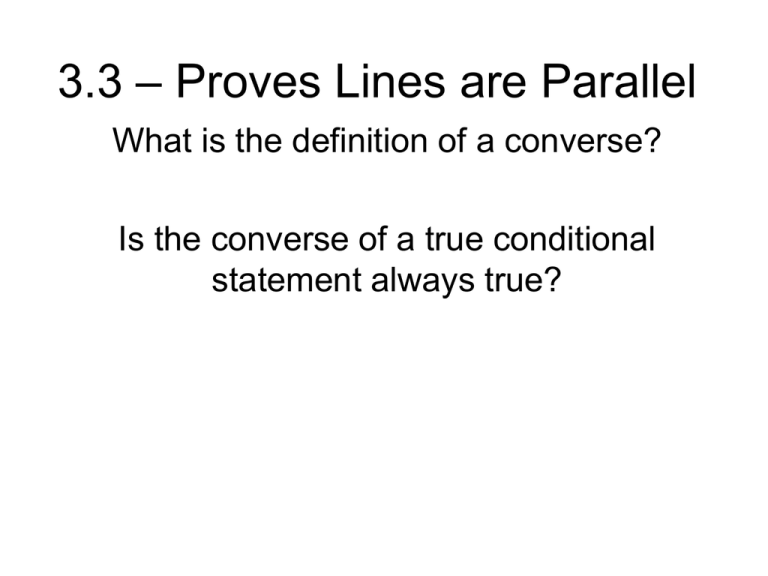
3.3 – Proves Lines are Parallel What is the definition of a converse? Is the converse of a true conditional statement always true? 3.3 – Proves Lines are Parallel Postulate 16 – Corresponding Angles Converse If two lines are cut by a transversal so the corresponding angles are congruent, then the lines are parallel. 3.3 – Proves Lines are Parallel Example 1: Apply the Corresponding Angles Converse Find the value of y that makes a // b. 3.3 – Proves Lines are Parallel What is the difference between what you can prove with the Corresponding Angles Converse and the Corresponding Angles Postulate? 3.3 – Proves Lines are Parallel Theorem 3.4 – Alternate Interior Angles Converse If two lines are cut by a transversal so the alternate interior angles are congruent, then the lines are parallel. 3.3 – Proves Lines are Parallel Theorem 3.4 – Alternate Exterior Angles Converse If two lines are cut by a transversal so the alternate exterior angles are congruent, then the lines are parallel. 3.3 – Proves Lines are Parallel Theorem 3.4 – Consecutive Interior Angles Converse If two lines are cut by a transversal so the consecutive interior angles are supplementary, then the lines are parallel. 3.3 – Proves Lines are Parallel Example 2: Can you prove that lines a and b are parallel? Explain why or why not? 3.3 – Proves Lines are Parallel Example 3: Prove that if two lines are cut by a transversal so the alternate interior angles are congruent, then the lines are parallel. 3.3 – Proves Lines are Parallel Example 4: In the figure, a // b and <1 is congruent to <3. Prove c // d. Use a two column or paragraph proof. 3.3 – Proves Lines are Parallel Theorem 3.7 – Transitive Property of Parallel Lines If two lines are parallel to the same line, then they are parallel to each other. 3.3 – Proves Lines are Parallel Example 5: Use the Transitive Property of Parallel Lines In the figure each rung of the ladder is parallel to the rung directly above it. Explain why the top rung is parallel to the bottom rung.
